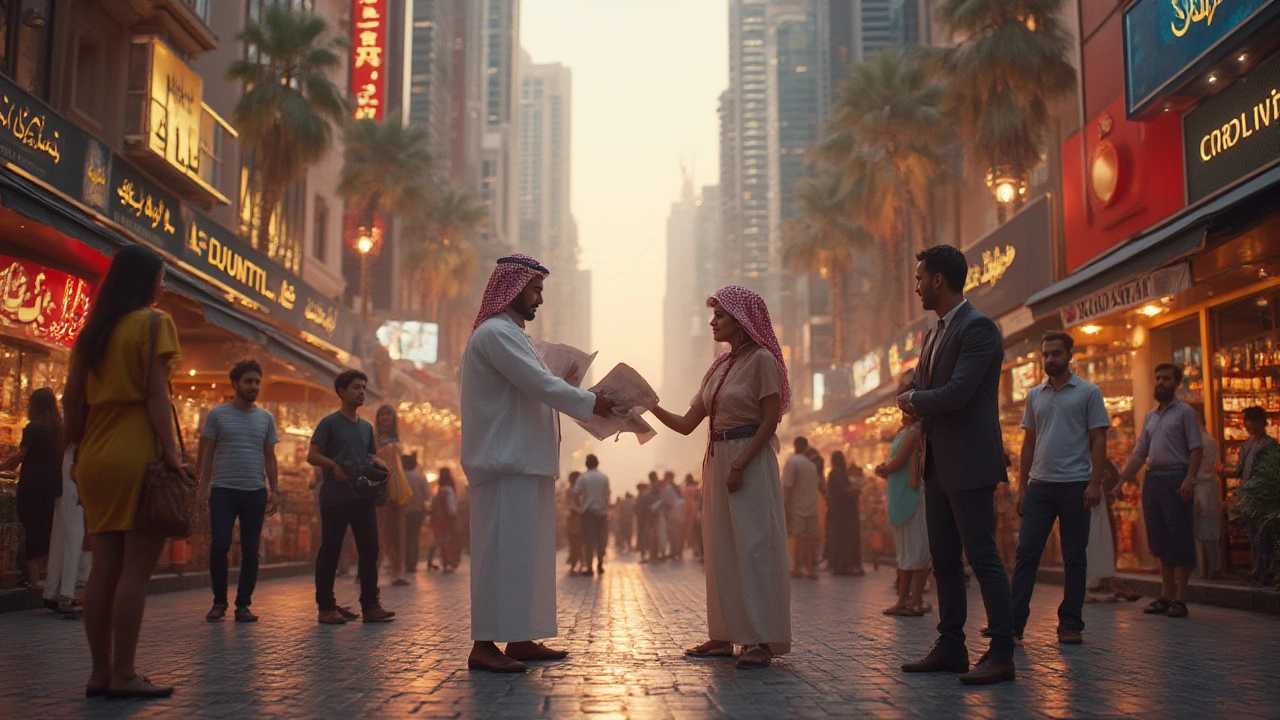What Language Is Spoken in Dubai? The Quick Answers You Need
If you’re heading to Dubai, the first question that pops up is usually, “What language do people speak there?” The short answer: Arabic is the official language, but English is everywhere you look. In this guide we’ll break down where you’ll hear Arabic, how English helps you get by, and which other languages pop up in the city’s melting‑pot vibe.
The Official Language: Arabic
Arabic is the language of government, schools, and most local TV channels. Signs on government buildings, road signs, and public transport announcements are all in Arabic. If you’re signing a lease, paying a bill, or dealing with a visa office, those forms will be in Arabic. Knowing a few basics – hello ("marhaba"), thank you ("shukran"), and please ("min fadlak") – goes a long way. It shows respect and often earns a smile from locals.
Modern Standard Arabic (MSA) is what you’ll read in newspapers, but in everyday conversation Emiratis use Gulf Arabic, a regional dialect with its own slang. You don’t need to master it, but catching a few words helps you feel at home.
English: The Practical Workhorse
English is the de‑facto language for business, tourism, and most expat circles. Almost every hotel, restaurant, and mall staff member speaks English fluently. Menus, metro maps, and airport screens are bilingual – Arabic first, English second. If you’re looking for a job, most multinational firms list English as a key requirement.
When you’re out on the street, you’ll notice that English signs appear alongside Arabic. Even the Dubai Police use an English radio channel for tourists. So if you can get by in English, you’ll be fine in most everyday situations.
Other Languages You’ll Hear
Dubai’s population is a patchwork of nationalities. You’ll hear Hindi, Urdu, Tagalog, Malayalam, and Persian spoken in neighborhoods, markets, and workplaces. Indian expats form a huge community, so Indian languages are common in grocery stores and cultural events. Filipino workers often chat in Tagalog or English with each other.
Tourist hotspots attract visitors from all over the world, so you might overhear Russian, French, German, or Chinese in high‑end hotels and luxury resorts. If you work in construction or hospitality, you’ll likely meet coworkers speaking a mix of languages.
Tips for Getting Around Language‑Wise
1. Carry a small phrasebook or a translation app. Even a few Arabic words can break the ice.
2. Use clear, simple English. Avoid slang or idioms that might confuse non‑native speakers.
3. When reading official documents, ask for an English version if possible. Most agencies provide bilingual copies.
4. Be patient and smile. People in Dubai are used to talking with foreigners and will usually help you out.
5. If you plan to live there long‑term, consider a short Arabic course. It’ll make daily errands easier and earn you respect.
Bottom line: Arabic is the official tongue, but English is the practical bridge for most visitors and expats. Knowing a handful of Arabic greetings and keeping your English clear will let you navigate Dubai smoothly, whether you’re at a souk, a business meeting, or a beachside café.

- Jul, 13 2025
- 0 Comments
What Language Is Spoken in Dubai? A Complete Guide to Dubai’s Linguistic Landscape
Curious about what language is spoken in Dubai? Discover the fascinating multilingual mix that shapes daily life, work, and travel in Dubai.
read more